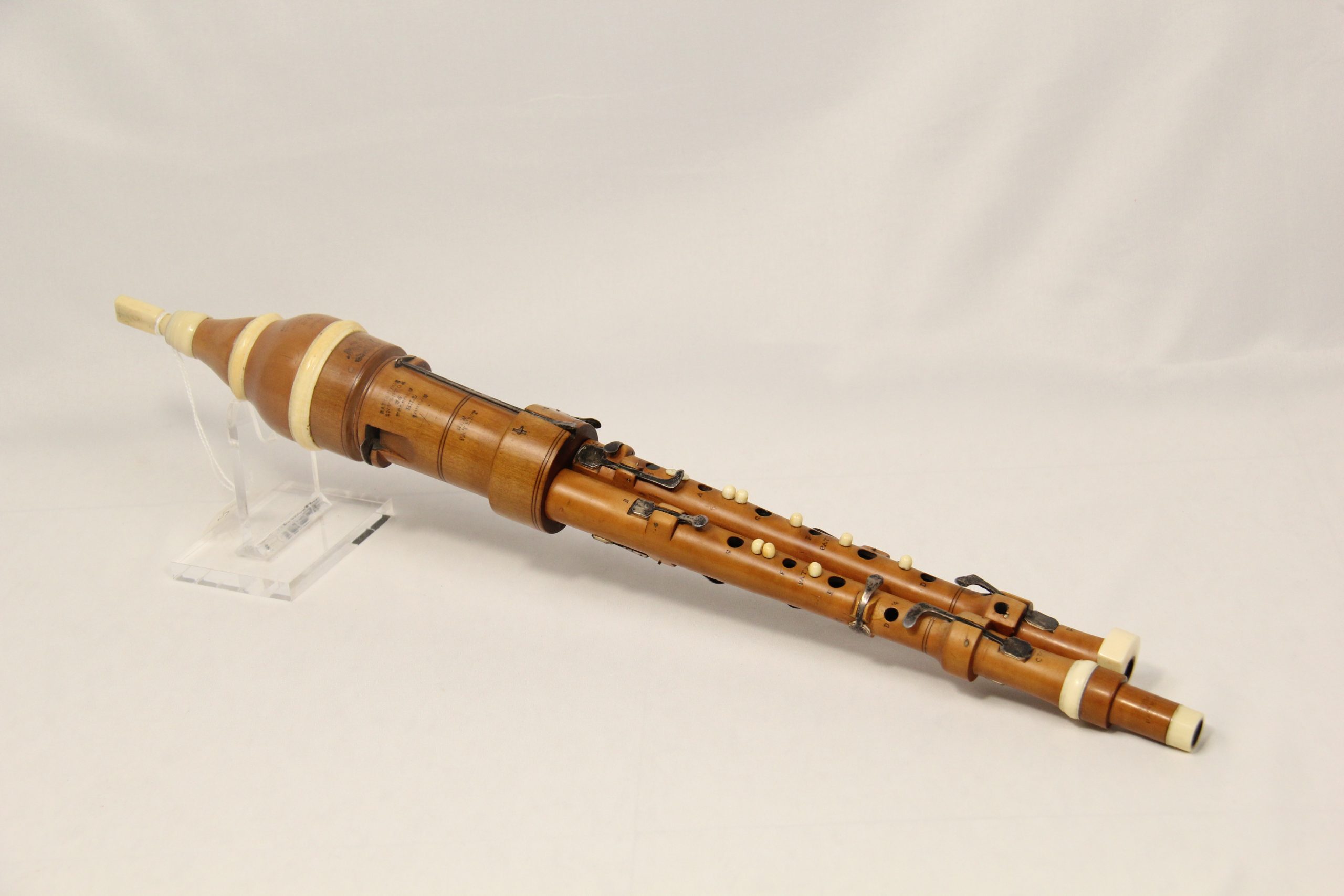Double Flageolet
Details
- Origin: London, England, U.K.
- Date: 1821-1834
- Maker: William Bainbridge
- Collection: E 5
Description
Comprised of five sections of boxwood, with ivory ferrules, bell rings, mouthpiece, and finger guides. Has ten block-mounted sterling silver keys and two silver cut-off keys. Four finger holes are on the B-note tube, and seven are on the D-sharp-note tube. Has “BAINBRIDGE I INVENTOR I HOLBORN I HILL I LONDON” on its barrel, the British coat of arms and “BAINBRIDGE I INVENTOR I 35 I HOLBORN I HILL I LONDON I NEW I PATENT” on its fipple joint, “PATENT” on its main joints, and “NEW I PATENT” on the bell joint of the longer tube.
In 1804, John Parry gave a performance in Covent Garden Theatre, now known as the Royal Opera House, in London, using a frame-joined pair of William Bainbridge’s English flageolets. A regular flageolet is a simple flutelike instrument with four finger holes and two thumb holes, but Parry’s performance gave Bainbridge an idea. Through development of a more complex instrument, Bainbridge made the first double flageolet, with a single mouthpiece and two conjoined tubes. The double flageolet caught on quickly, and after Bainbridge died in 1831, his wife took over until 1835, when Bainbridge’s apprentice Henry Hastrick continued their production until his death in 1854 and John Simpson did the same until 1869. Bainbridge originally produced them in many different sizes, even as others copied his work, and a large amount of his original double flageolets have survived.
The double flageolet has the unique trait of being able to harmonize its two tubes. Without a keyboard system or more than seven finger holes to cover the Western scale, that is quite difficult. Another of its characteristics is that it was acceptable for women to play early on, despite not having nearly any sheet music written for it.

Sources
Head, Jacob. “On Flageolets—John Parry.” The Pleasant Companion: The Flageolet Site, May 1, 2021. http://flageolets.com/articles/onflageolets.php#double-invention.
Head, Jacob. “The Double Flageolet.” The Pleasant Companion: The Flageolet Site, May 1, 2021. http://flageolets.com/articles/introduction/double.php.







